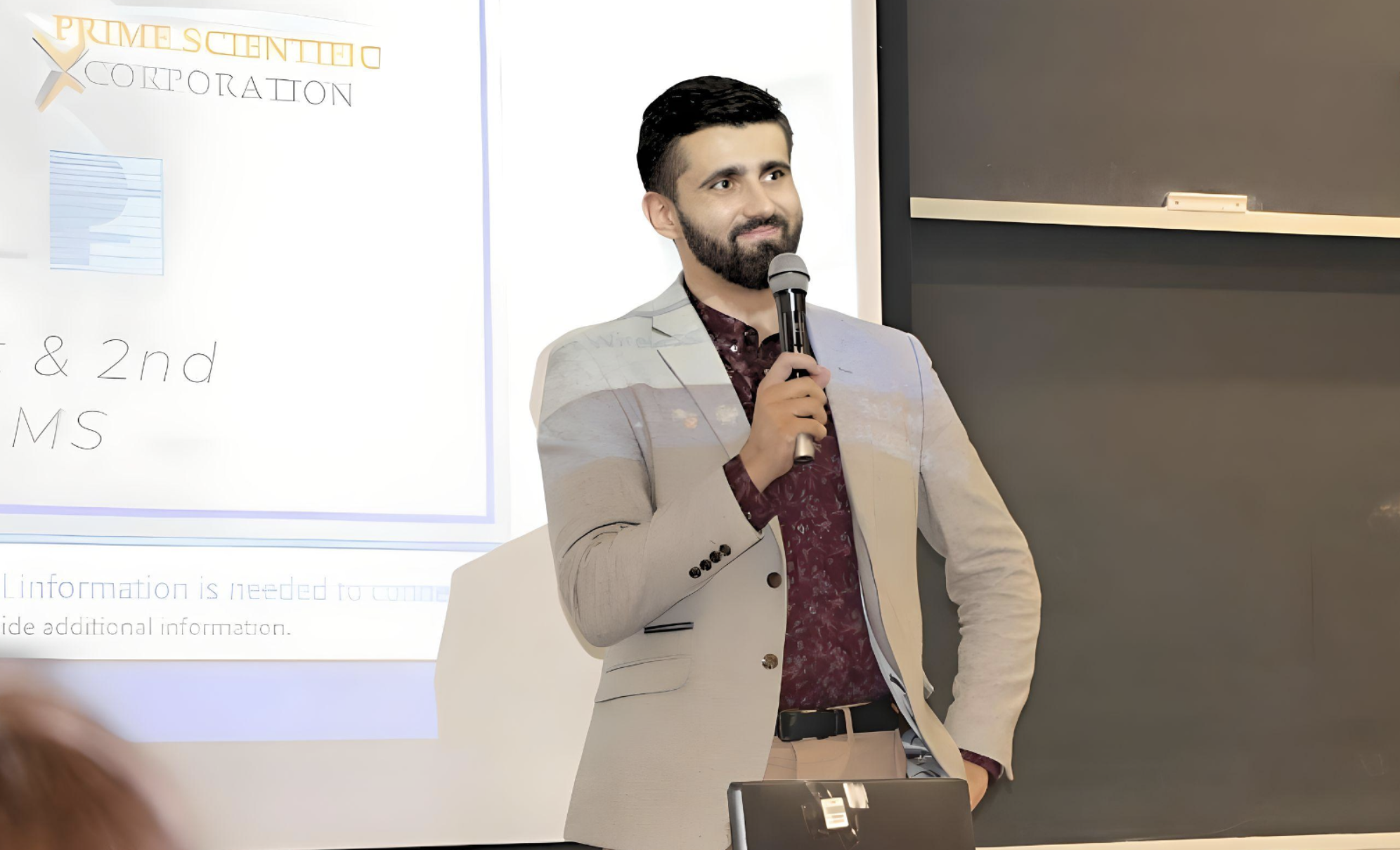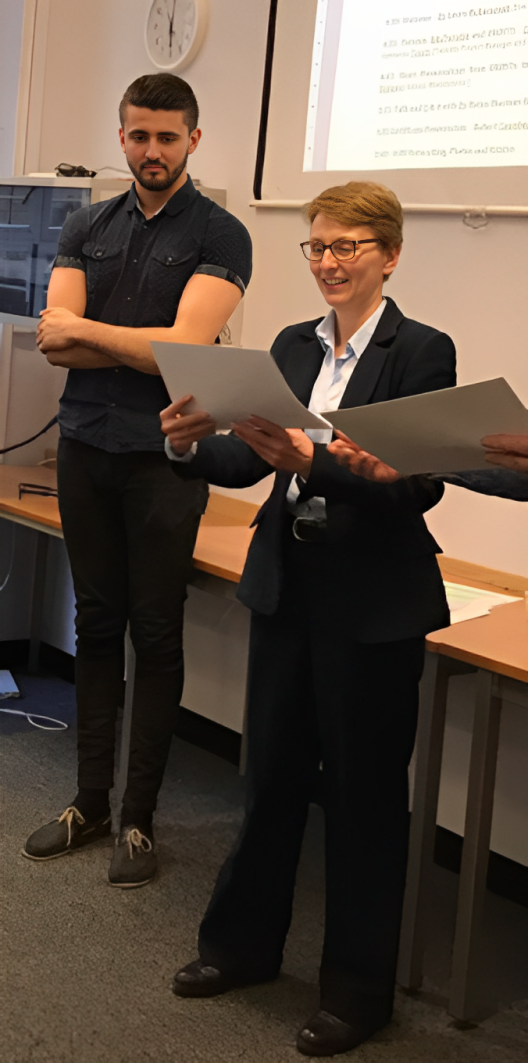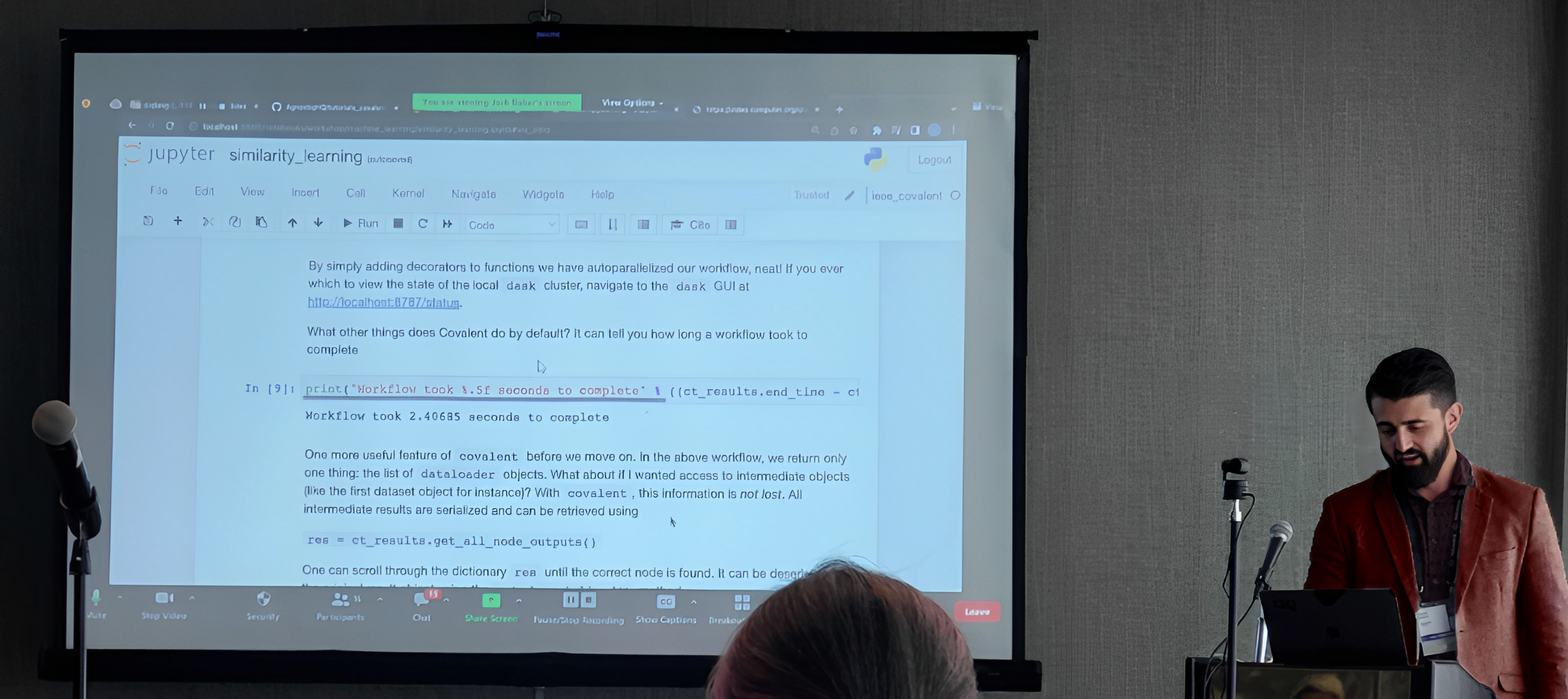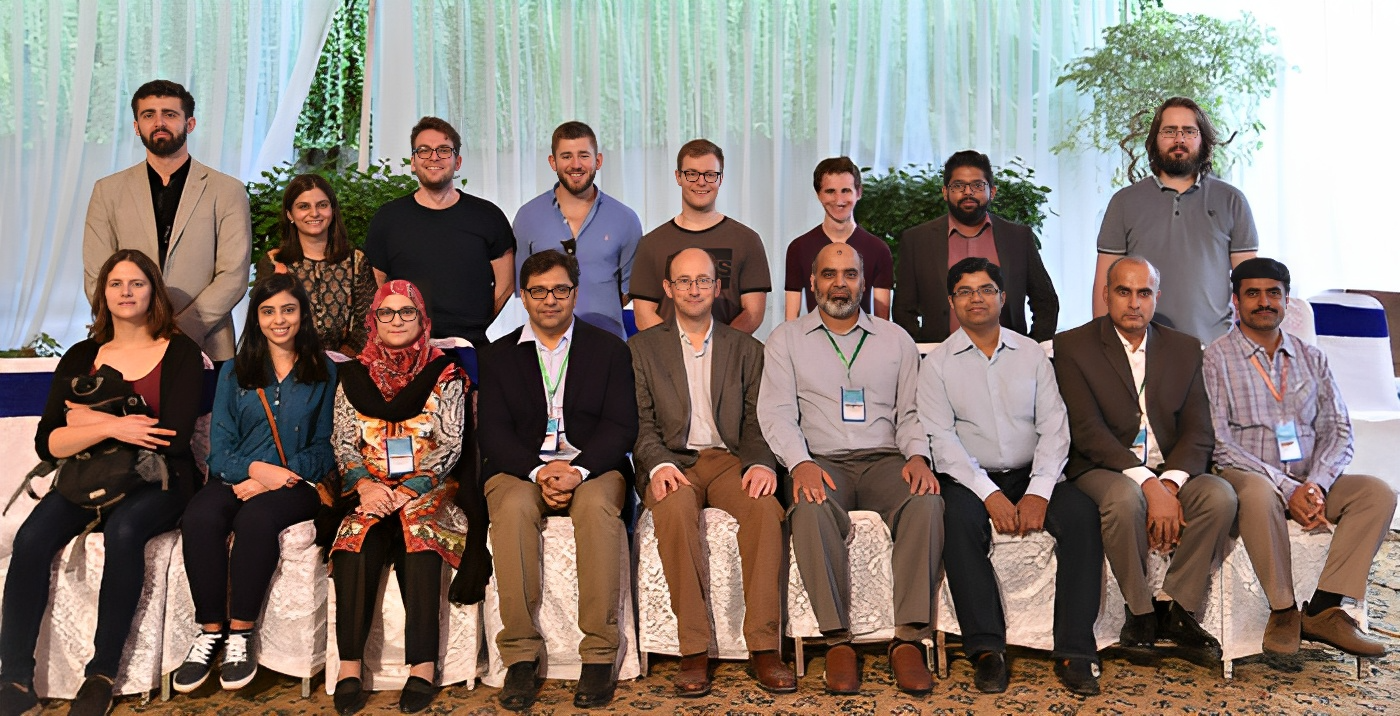Teaching

My teaching philosophy centers around the belief that learning in the physical sciences is most effective when students actively engage in hands-on projects, particularly within the realm of programming. I firmly believe that undertaking these projects not only develops technical skills but also fosters a deeper understanding of concepts and nurtures cognitive connections within physics and mathematics. By immersing students in project-based learning experiences, I aim to create an environment where they can explore and apply theoretical knowledge in practical ways. Students develop problem-solving skills, critical thinking abilities, and gain a sense of accomplishment as they witness the direct application of physical principles. Moreover, such projects encourage collaboration, creativity, and curiosity, empowering students to actively construct their own knowledge and develop a lifelong passion for the physical sciences, mathematics and computing.
Use the below links to jump to teaching highlights:
At University College London | Workshops and Tutorials | Education Advocacy and Research | Summer School Lectures
At University College London
I have several years of experience teaching undergraduate and graduate level physics courses at University College London. While my role in each course varied, in general, I gave lectures, led problem solving seminars, guided students through practical workshops and marked coursework material. The relevant course codes are provided below with a short description and are linked to the full course content:
| Course | Course code | Level of study | Description | Link |
|---|---|---|---|---|
| Practical Physics and Computing 1 | PHAS0007 | 1st year undergraduate | A two-term course with programming elements and a practical laboratory component with a focus on data analysis skills. I taught this course for two consecutive years. | Full course description |
| Practical Physics and Computing 2 | PHAS0029 | 2nd year undergraduate | A sequel to PHAS0007 above, but covering more advanced topics in the second year undergraduate course. There is also a considerable coursework component based on digital thermometer electronics. I taught the computing component of this course for two consecutive years. | Full course description |
| Computational Physics | PHAS0030 | 3rd year undergraduate | An advanced third year course in computational physics aimed at providing students with a deep understanding of the strengths and weaknesses of numerical simulations and to introduce the field of research software engineering. | Full course description |
| Practical Skills 1P | PHAS0008 | 1st year undergraduate | A one term course taught after PHAS0007. This course focuses on practical laboratory skills especially experiment planning and execution. I taught this course for two consecutive years. | Full course description |
| Practical Physics 2A | PHAS0028 | 2nd year undergraduate | A sequel to PHAS0008 above where experiments are now related to more advanced topics covered in the second year of undergraduate studies. | Full course description |
| Solid State Physics | PHAS0041 | 3rd year undergraduate | A third year option module covering electronic and magnetic properties of materials, crystallography and the behaviour of superconductors. | Full course description |
| Advanced Quantum Field Theory | MSci 4245/QMUL PHY7007U/P | Postgraduate (Master's level) | A Master’s level course in quantum field theory. This course also allowed participants from Queen Mary University London. | Full course description |
Workshops and Tutorials
I travel within Canada and overseas to deliver workshops and tutorials on quantum algorithms, machine learning and heterogeneous workflow orchestration. Recent events are listed below with a link to content if available.
- Orchestrating and Managing Quantum Machine Learning Workflows with Covalent: IEEE Quantum week, Broomfield, Colorado (2022). Learn how to use Covalent to manage a run experiments to study the differences between classical and quantum methods for similarity learning of images. [Github]
- Interdisciplinary Quantum HACKathon (IQuHack): Massachusetts Institute of Technology (2023). We aim to bring students (high school through early-career professionals) from a diverse set of backgrounds to explore improvements and applications of near-term quantum devices. I contributed as a virtual competition judge. [Web] [Github]
- Practical Quantum Machine Learning: Time Series Analysis with Pennylane and Covalent: IEEE Quantum week, Bellevue, Washington (2023). Learn how to analyze time-series data using hybrid quantum-classical machine learning techniques utilizing Pennylane and Covalent. Github link coming soon
Education Advocacy and Research
Educators should strive to achieve a world where access to education is maximized and equalized for all and should be looking for new and innovative ways to deliver education. In recent years, I have made contributions towards this goal by volunteering in education programs and conducting fundamental science education research. Ongoing projects are summarized below:
- Original Research by Young Twinkle Students (ORBYTS): ORBYTS is a multi-award winning science outreach and education program. The goal of the ORBYTS project is two-fold: (1) To widen access to physics & chemistry education particulary focussing on promoting participation from women and other underrepresented groups in STEM. (2) To have students participate in peer-reviewed science. I participated in this program for two years as a tutor and remain an advocate. Check out the education research articles I was involved with during my tenure as an ORBYTS tutor: [ Phys. Educ. 2018] [ A&G Mag. 2017]
- Pak-UK Education Gateway: The Pak-UK Education Gateway aims to enhance partnerships between the higher education sectors of Pakistan and the UK. Key areas of collaboration under this umbrella framework are: innovative and collaborative research, higher education leadership, quality assurance and standard setting, distance learning, international mobility and transnational education. I have travelled to Pakistan as an advocate for this program and continue to support its success. Our efforts were documented by Lahore University of Management Sciences and University of the Punjab.
Summer School Lectures

I have delievered undergraduate level lectures at summer schools in the UK. The scope of these lectures was to provide a spring-board into the first year of undergraduate physics, chemistry and computer science.
- Debtate Chamber: Introduction to Computer Science: I designed and delivered a week-long lecture series on introductory topics in computer science for Debate Chamber Summer Schools. This course covered introductory logic, the history of computer science, complexity analysis, programming in Java and smartphone app design.
- Original Research by Young Twinkle Students (ORBYTS): diatomic constants: After my first year of being an ORBYTS tutor (detailed in the previous section), I supervised and lectured students on molecular physics in the first ORBYTS summer school. This school focussed on building research skills with a goal of engineering a database of molecular diatomic constants. This course covered techniques for organizing and digesting scientific literature, presentation skills and the vibrational properties of molecules.

